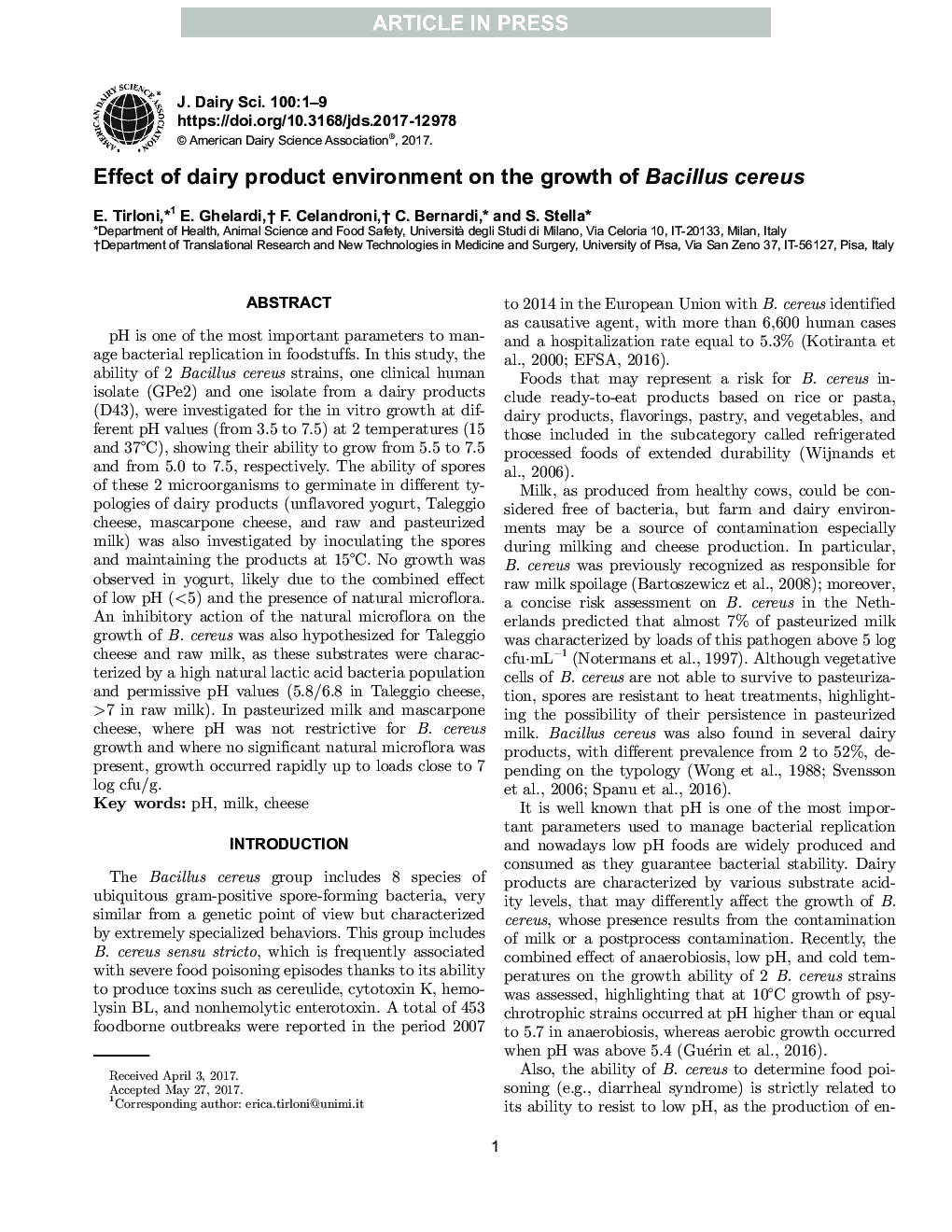| Article ID | Journal | Published Year | Pages | File Type |
|---|---|---|---|---|
| 5542068 | Journal of Dairy Science | 2017 | 9 Pages |
Abstract
pH is one of the most important parameters to manage bacterial replication in foodstuffs. In this study, the ability of 2 Bacillus cereus strains, 1 clinical human isolate (GPe2) and 1 isolate from a dairy product (D43), were investigated for in vitro growth at different pH values (from 3.5 to 7.5) at 2 temperatures (15 and 37°C), showing their ability to grow from 5.5 to 7.5 and from 5.0 to 7.5, respectively. The ability of spores of these 2 microorganisms to germinate in different typologies of dairy products (unflavored yogurt, Taleggio cheese, mascarpone cheese, and raw and pasteurized milk) was also investigated by inoculating the spores and maintaining the products at 15°C. No growth was observed in yogurt, likely due to the combined effect of low pH (<5) and the presence of natural microflora. An inhibitory action of the natural microflora on the growth of B. cereus was also hypothesized for Taleggio cheese and raw milk, as these substrates were characterized by a high natural lactic acid bacteria population and permissive pH values (5.8/6.8 in Taleggio cheese, >7 in raw milk). In pasteurized milk and mascarpone cheese, where pH was not restrictive for B. cereus growth and where no significant natural microflora was present, growth occurred rapidly up to loads close to 7 log cfu/g.
Related Topics
Life Sciences
Agricultural and Biological Sciences
Animal Science and Zoology
Authors
E. Tirloni, E. Ghelardi, F. Celandroni, C. Bernardi, S. Stella,
